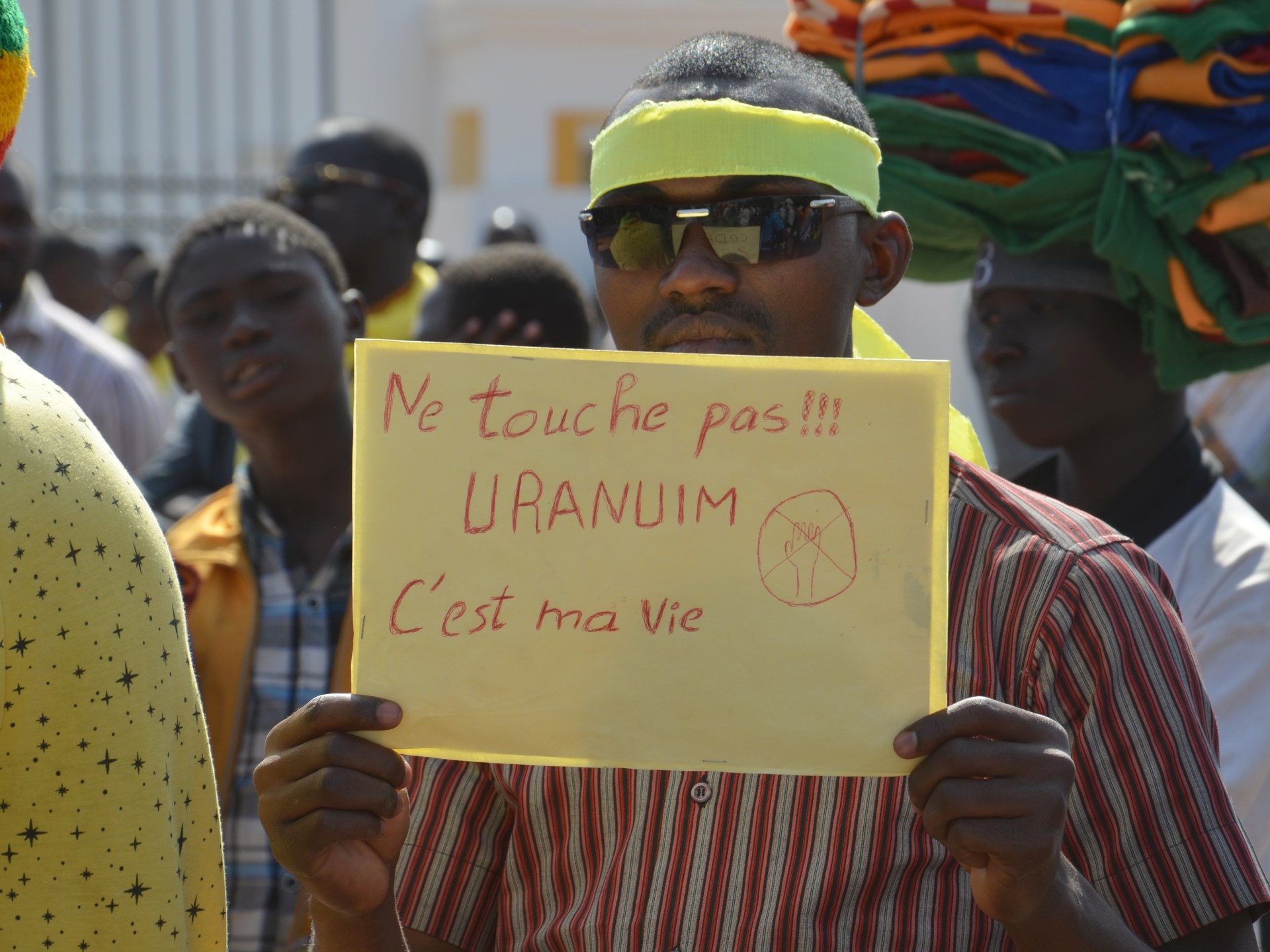The price of uranium has risen slightly since last week’s military coup in Niger as mining operations have continued in the world’s seventh-largest producer of the radioactive metal, but a consultancy says prices may rise in the coming weeks.
The spot price of uranium, widely used for nuclear energy and treating cancer, crept up to $56.25 a pound on Monday from $56.15 a week earlier, market research firm and consultancy UxC said on Tuesday.
The price has doubled over the past three years but is nowhere near a peak of $140 in 2007.
Ben Godwin, head of analysis at London-based Prism Political Risk Management, told Al Jazeera that current events in Niger, which produces 4 percent of the world’s uranium supply, could be critical to Europe.
“It [the coup] is certainly a topic of great interest in the moment, particularly as uranium markets are very, very tight at the moment,” he said. “Demand has been going up over the last few years, and this year, we’ve seen the uranium spot price go up by nearly 40 percent year to date.”
French nuclear fuels company Orano, which operates uranium mines in the West African country, said on Tuesday that its operations continued despite plans by France to evacuate its citizens from Niger and cut aid. Ninety-nine percent of its staff in the country are Nigerien nationals, Orano said.

The spot price is little changed also because Orano sells uranium on long-term contracts and the summer months are slow in the spot market, said Jonathan Hinze, president of UxC.
“An event like this could take a bit more time to seep into the market psychology. We could very well still see bigger impacts in the days and weeks to come,” he told Reuters news agency. “All indications would be that this would be a catalyst for upward moves in the uranium price, given the overall tight supply/demand balance in uranium at this time.”
The European Union’s nuclear agency, Euratom, said on Tuesday that it saw no immediate risk to nuclear power production in Europe should Niger cut its deliveries of uranium because utilities in the bloc have inventories to last for three years.
Niger was the second-largest supplier of natural uranium to the EU last year, Euratom said.
But Godwin also warned that there could also be an impact on Niger’s finances as half of its uranium exports currently go to France and the wider European Union.
On Monday, the officers who seized power in Niger last week detained senior politicians, including the mines minister, defying international calls to restore democratic rule.



I agree. Electrified transportation will require levels of electricity production several orders of magnitude higher than current ones. No way to provide this amount of power with hydro/sun/wind alone.
German experts seem mostly concerned about the logistics. Even if we built hundreds of nuclear power plants, we just couldn’t pump enough juice through our power grid to reach deep into the residential areas, where power usage will increase the most (from EVs, electrical heating etc.).
There are efforts to simply reduce energy consumption with e.g. better public transport and heat pumps, but a big part of our strategy will also involve power production and storage in those residential areas, by residents.
And that’s where we end up back at solar power, because you can easily put solar on roofs and balconies. Then you can directly use that power or sell it on the market. Or if you don’t need your EV full for the next trip, you can store power in its battery while it’s cheap and sell it when the price is high.
Yep, I agree 100℅. In the end, we won’t have the beginning of a solution until people start using less energy. Furthermore, different infrastructures call for different energy mixes. That’s why we need to find a way to let every EU country run its energy policy while allowing for the common market to protect consumers. And that’s a tough one.
A mid-sized EV driven the German average consumes 300-400W averaged over the year or about the same amount of energy as a mercury street light bulb.
Additionally Solar alone has a much higher limit than any other generation method.